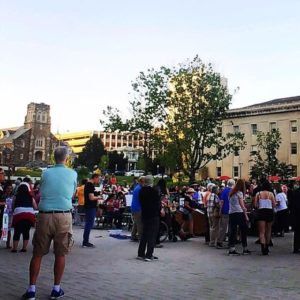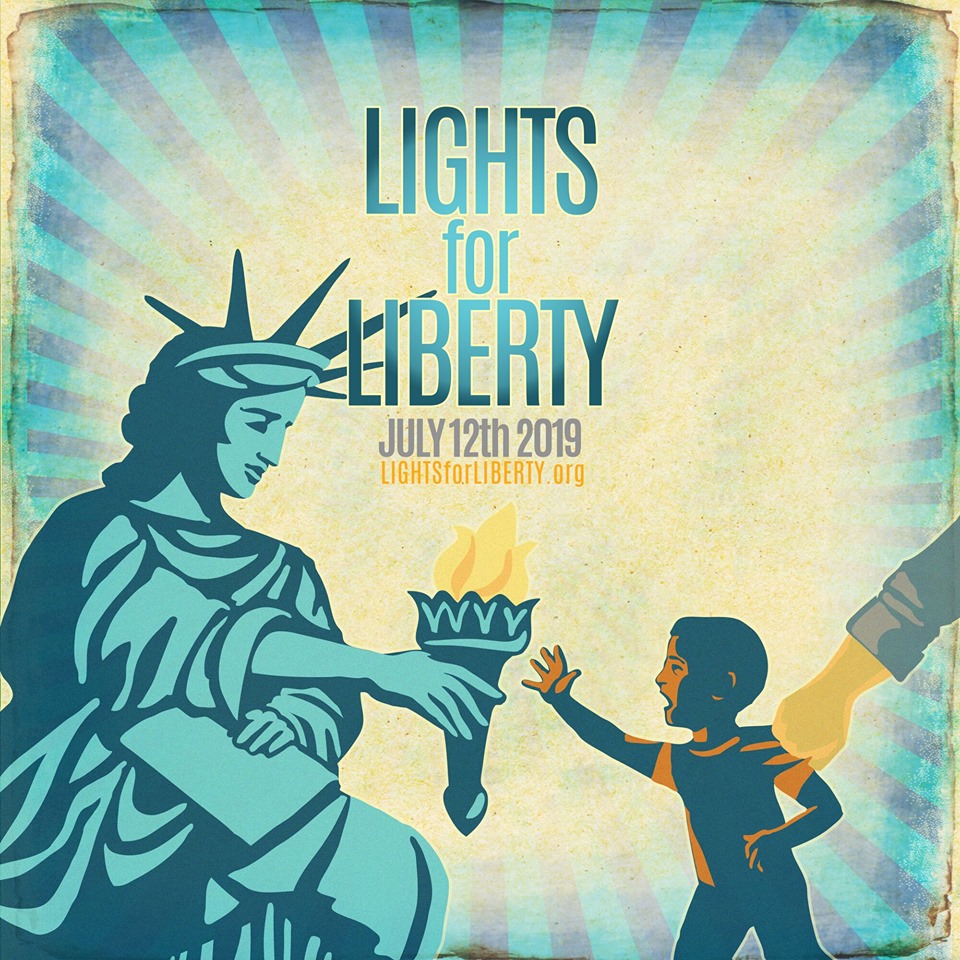Esperanza Center joined elected officials, community leaders, and immigrant advocates at the Lights for Liberty Rally on Friday, July 12 in Towson to call for an end to the detention camps at the border. The rallies were held worldwide and at 9 p.m. attendees held high lit candles in solidarity with the immigrants retained in the detention centers.
For the past several weeks, the Esperanza Center has held several Know Your Right in Baltimore City at Sacred Heart of Jesus and St. Patrick’s Catholic Church. Pastor, Fr. Bruce Lewandowski is a strong advocate for immigrant communities who are his parishioners.
Fr. Bruce was interviewed for All Things Considered on Sunday by Michel Martin.
The Know Your Rights sessions for individuals and families concerned about what might happen as federal officials report that they are ready to arrest, detain and deport up to 1 million “undocumented immigrants with final removal orders.” While immigration is a complex process, there are clear ways we serve immigrant neighbors of all origins and statuses.

Giuliana Valencia-Banks leading a Know Your Rights meeting at St. Patrick’s Church in Fells Point, Baltimore City
What, exactly, do we tell immigrants? Regardless of a person’s status, the U.S. Constitution affords them rights. Know Your Rights sessions help immigrant neighbors understand those rights—for example, the right to refuse to sign documents or to give fingerprints under many circumstances. They also have the right not to allow an Immigration and Customs Enforcement official into their home without a judicial war

Patriot Plaza Know Your Rights Rally in Towson on Friday, July 12.
rant—a warrant signed by a judge. (“ICE warrants” or “administrative warrants,” which were allowed beginning in early 2017, are signed by ICE officials and are not actually warrants as the law technically defines them. They are for civil violations of immigration law, not criminal charges.)
In many cases, the people who come to our sessions want to know if the legal processes they have already undergone will remain valid, or whether upcoming processes will be available as they understood.
What do we actually do for immigrants?
Through the Esperanza Center, we offer:
- -primary and preventive health care for people who don’t have insurance or can’t afford care (In addition to encountering with compassion, this helps prevent emergency room visits that cost everyone more.)
- -English classes for adults and children
- -reunification for unaccompanied minors with sponsors or families
- -low- or no-cost legal services
- -translation, assistance with forms and applications, notary services, and connections to resources
- -human trafficking-related services
Why is it important to serve people who have immigrated?
Maryland ranks No. 6 in states receiving immigrants. The people we serve come from many places—from Japan to Jamaica—and have arrived in many ways, be they “legal” or otherwise. Often, they want to be part of the American experience, to learn English, go to school, get good jobs and contribute to their communities. This makes communities better.
There’s been a surge of people—more than 440,000 detained at the border between Oct. 1, 2018 and May 31, 2019—crossing the southern border from what’s known as the Northern Triangle: Guatemala, Honduras and El Salvador. These nations are particularly plagued by violence, poverty and extortion. Honduras and El Salvador have some of the highest murder rates in the world. In Guatemala and Honduras, about 60 percent of people live below the poverty line.
Immigration and asylum proceedings can be long and complex. There are requirements, limits, exclusions, expenses, and other obstacles that can make it very difficult for someone from another country to seek what we might define as a fully legal status, especially if someone has little money.
Ultimately, our service to our immigrant neighbors is a question of humanity, not politics. Even those who are not under final removal orders and those seeking asylum are afraid they will be swept up and sent away. Their children are afraid for their safety. Our work helps recognize their dignity and ease their fears by giving them information and access to help.
Esperanza Center after fire: More need, more hope
VIDEO: The Meaning of the Movement: Blanca and Carlos’ story

